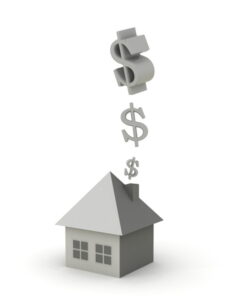 The short answer to this is, “not necessarily,” but bear with us as we explain!
The short answer to this is, “not necessarily,” but bear with us as we explain!
We get questions about furnace efficiency a lot when homeowners are shopping for a new heating system. They’re often overwhelmed by all the options and unsure of what to go with.
Perhaps the most important factor to consider with your heater purchase is the efficiency. After all, you want to be as comfortable as possible, as affordably as possible, right?
Read on as we uncover what’s the most efficient when it comes to furnaces, and dive into whether electric or gas is a better option for you.
Rating the Efficiency of Your Furnace
Rating furnace efficiency can be a little more complicated than you may imagine. First off, you have to understand what we mean when we say efficiency. We’re talking about the rating of the heating output of your furnace compared to the amount of energy it actually consumes.
This doesn’t necessary mean that a furnace with a higher efficiency rating will automatically cost you less to operate each month, however. And that’s what we mean by the “it’s complicated” disclaimer we gave above.
It’s important to first understand how furnaces are rated for efficiency. When you look at heater stats, you will notice the term AFUE. This stands for Annual Fuel Utilization Efficiency, and it’s the measurement for energy efficiency of all furnaces.
The rating is stated as a percentage, and that number identifies the amount of energy source that your furnace actually converts directly into heat energy that then gets sent through your home. The remaining energy goes to waste in the form of exhaust. Therefore, a mid-range gas furnace may have an AFUE rating of 80%, and this means that the system converts 80% of the natural gas that it burns into heat, while it loses 20% of it through a flue as exhaust.
Understanding Standard Furnace Efficiency Ratings
Natural gas efficiency ratings have increased over the years. For a long while, the typical gas furnace was rated around 70% AFUE. If your furnace is 10+ years old, then it likely has an AFUE around 80-85%. The high-efficiency models of today rate in the 90s, with condensing furnaces rating as high as 98% AFUE.
One thing to keep in mind here when we’re talking about efficiency in relation to costs, is that there are other cost factors to consider. For instance, a high efficiency gas furnace is more expensive to install than an electric furnace, because of everything involved in the installation.
That said, all electric furnaces have an efficiency rating of 100%, and they’re less expensive to install than most natural gas-powered furnaces.
… But That Doesn’t Necessarily Mean You Should Get an Electric Furnace
At least, not if you’re trying to save money from month to month. We understand how you’d come to the conclusion, based on everything we said above, that an electric furnace is more affordable than a gas one. An electric furnace doesn’t waste any energy. It doesn’t burn any fuel, so it doesn’t have any energy to exhaust—instead, all the energy used by an electric heater is converted straight to heat that goes through your home.
But the most important factor to keep in mind here is that electricity is a more expensive fuel source than natural gas is. So, an electric furnace with an AFUE rating of 100% can actually be more expensive to run than a mid-efficiency gas-powered furnace with an 85% AFUE rating. The best way to decide on what’s best for your specific home is to reach out to our pros. We’ll help you make an educated decision.
Contact Sound Heating and Air Conditioning Inc. for professional furnace repair in Kent, WA.
